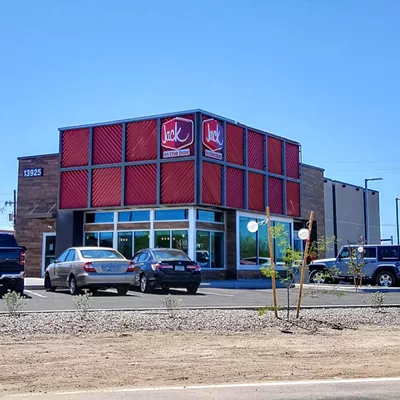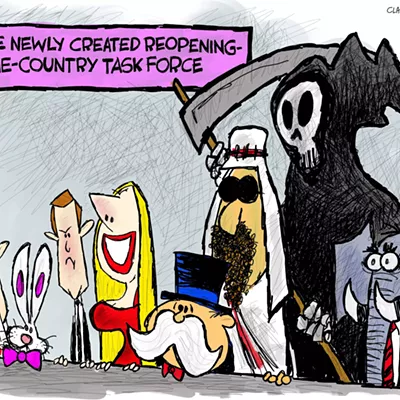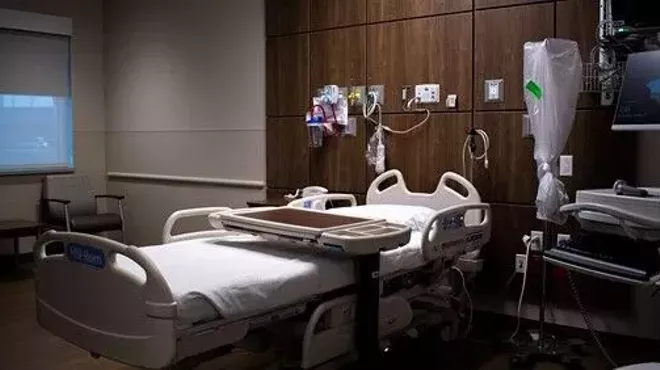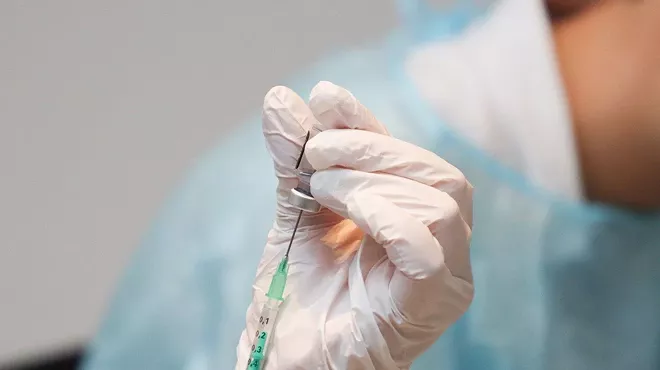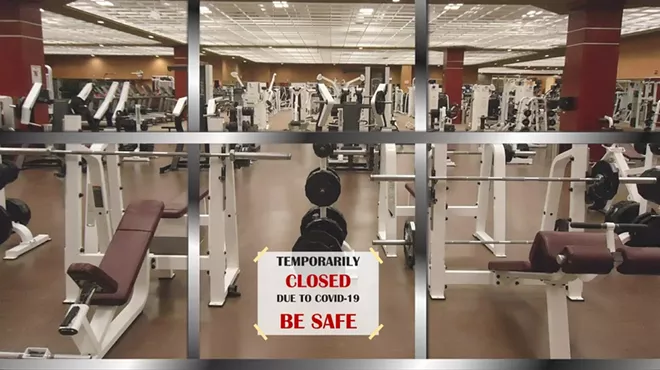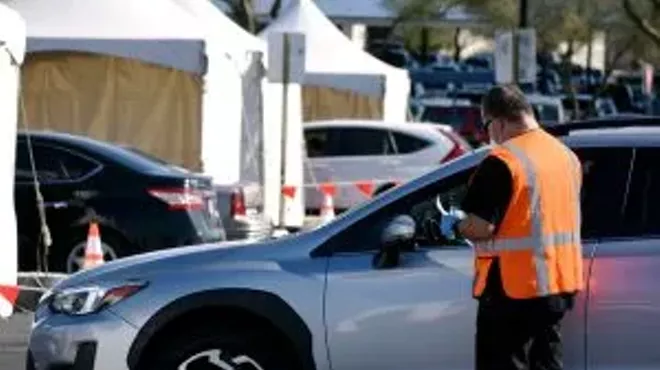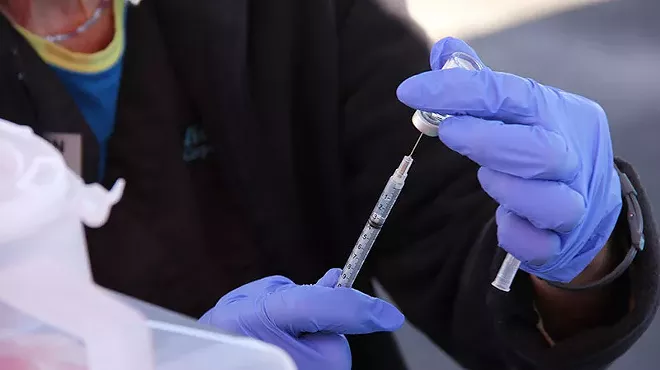Thursday, April 16, 2020
Your Southern AZ COVID-19 PM Roundup for Thursday, April 16: What We Covered Today
Here are the different stories we covered today:
Ducey said the tests would go to healthcare workers and first responders.
“Antibody testing is not a cure-all, but learning more about it is an important step to identifying community exposure, helping us make decisions about how we protect our citizens, and getting us to the other side of this pandemic more quickly,” Ducey said in a prepared statement. “Our health care workers and first responders are on the front lines, and my top priority is to identify ways to protect them and I am eager to get this underway.”
The state remains under Ducey’s stay-at-home order that has closed a wide number of “non-essential” businesses, including many retail stores, barbershops, salons, and swap meets. Public parks remain open but amenities such as playgrounds and restrooms are closed.
Under the stay-at-home order, Arizonans are still able to shop for groceries, medical and household needs, and pet supplies. They can also go work, pick up a take-out meal from a restaurant, travel to take care of a family member, friend or pet, and can still go walking, hiking, biking and golfing, provided that they adhere to social distancing guidelines.
Visitors from areas with major community spread of COVID-19 now must enter quarantine for two weeks if they come to Arizona, under an executive order issued by Ducey.
The outbreak has hammered Arizona's economy, with nearly a quarter-million people applying for unemployment in recent weeks. State budget forecasters told lawmakers last week that the state is facing a budget deficit of $1.1 billion in the next fiscal year, which begins in July. But they cautioned that the uncertainty surrounding the outbreak means they could be wrong by $500 million in either direction.
At yesterday’s Tucson City Council meeting, City Manager Mike Ortega warned council members that the city was going to take a major financial hit, but said he didn’t have enough data to make an informed forecast as to the depth of it.
“We know there’s an iceberg ahead, but won’t know how large until probably mid-June,” said Ward 6 Councilmember Steve Kozachik before the study session. “We need to budget assuming the titanic and hope to be surprised.”
UA President Robert C. Robbins warned in a teleconference that a return to normal life could months away—or longer. “Until there's a vaccine, we’re never going to be completely risk free,” Robbins said. “That’s probably a year at least before we would have a vaccine.”
Robbins also said that the UA was bracing for the possibility that many out-of-state and international students might not return to campus in the fall because of the outbreak, which could lead to financial calamity for the university. “The financial impact, we’re modeling it, but as you could imagine our net tuition revenue is derived greatly from out-of-state and international students. So we’re going to have significant shortfalls in the projections of what we’re going to have in tuition revenue,” Robbins said.
Visitors from areas with major community spread of COVID-19 now must enter quarantine for two weeks if they come to Arizona, under an executive order issued by Ducey.
Business owners have scrambled to take advantage of loans under the Paycheck Protection Program, which is offering $349 billion in forgivable loans as part of the $2 trillion COVID-19 relief package passed by Congress in response to the outbreak. Business owners have complained that the loan process, run through banks by the Small Business Administration, was too complicated and filled with roadblocks.
Restaurants, which are limited to takeout and delivery, can sell more of their bulk goods and supplies as groceries. Tucson Mayor Regina Romero announced last week that local restaurants could now operate pop-up grocery stores and sell their bulk goods without any changes to their certificates of occupancy.
Under one of Ducey’s new orders, the staff at nursing homes and similar facilities now have to wear personal protective equipment and institute symptom checks for anyone entering the building. In addition, residents must be provided with a video device to communicate with the outside world, according to an executive.
Ducey has also said hospitals and healthcare workers, who are concerned about a shortfall in personal protective equipment, are required to track data related to COVID-19 such as available hospital beds, the number of patients visiting emergency rooms with COVID-19 symptoms and the use of ventilators and personal protective equipment.
With schools now closed through the end of the academic year, teachers have transitioned to online learning and districts across the region are delivering lunch and breakfast meals to kids via school buses or setting up central locations.
In the face of the spreading virus, Ducey has also halted residential, business and nonprofit evictions; halted all elective surgery to keep hospital beds available for COVID-19 patients; loosened regulations to make telemedicine more available and increase eligibility for AHCCCS, the state's Medicaid program; and activated the National Guard to assist in grocery stores as Arizonans clear the shelves.
Courts have rescheduled most hearings to avoid spreading the virus.
COVID-19 symptoms typically occur two to 14 days after exposure, and include headache, fever, cough, and shortness of breath, according to the CDC. However, some cases of the virus are entirely asymptomatic. Practices to avoid infection include social distancing (of at least six feet), washing your hands, avoiding unnecessary trips and not touching your face. COVID-19 can survive on cardboard for up to 24 hours, and on stainless steel and plastic surfaces up to three days.
If you think you have been exposed to COVID-19 and develop a fever, cough or difficulty breathing, speak with a healthcare provider for medical advice. According to the CDC, people who are mildly ill with COVID-19 are able to recover at home. Stay at home and avoid public transportation, but stay in touch with your doctor. If you do leave your home, wear a facemask and clean your hands often. If you develop more severe symptoms (persistent pain or pressure in the chest, confusion, bluish lips) get medical attention immediately. Your local health authorities will give instructions on checking your symptoms and reporting information.
Have you caught COVID-19? Are you feeling ill? Is your small business struggling to make it? Have you lost your job as a result of the outbreak? Are you struggling to manage your kids while schools are closed? Tell us your COVID-19 stories. Send an email or photo to jimn@tucsonlocalmedia.com.
- The number of confirmed coronavirus cases in Arizona had topped 4,200 as of Thursday, April 16, according to the morning report from the Arizona Department of Health Services.
- An internal memorandum written by U.S. officials and addressed to Secretary of State Mike Pompeo warns that cutting funding to the World Health Organization, as President Donald Trump said he would do Tuesday, would erode America’s global standing, threaten U.S. lives and hobble global efforts to combat the coronavirus pandemic.
- Arizona hospitals are facing “dire financial consequences” and furloughing staff, as cutbacks meant to prepare for COVID-19 cases have instead cost them as much as $575 million a month, about 30-40% of normal revenues statewide.
- In recent weeks, residents outside Boston have died at home much more often than usual. In Detroit, authorities are responding to nearly four times the number of reports of dead bodies. And in New York, city officials are recording more than 200 home deaths per day — a nearly sixfold increase from recent years.
- The U.S. Postal Service appears to be continuing its checkered response to the coronavirus. Workers across the country say they’re not being informed when colleagues have tested positive for COVID-19, despite a Postal Service policy to do so.
- Raytheon employees in Tucson will lead the way on work for the United States Navy’s Evolved Sea Sparrow Missile system after a $13.7 million contract modification was awarded to the company on Wednesday.
- A lot of businesses are struggling with the closures for COVID-19 precautions. But, that didn't stop one business in Marana from opening after months of planning and construction.
Ducey said the tests would go to healthcare workers and first responders.
“Antibody testing is not a cure-all, but learning more about it is an important step to identifying community exposure, helping us make decisions about how we protect our citizens, and getting us to the other side of this pandemic more quickly,” Ducey said in a prepared statement. “Our health care workers and first responders are on the front lines, and my top priority is to identify ways to protect them and I am eager to get this underway.”
The state remains under Ducey’s stay-at-home order that has closed a wide number of “non-essential” businesses, including many retail stores, barbershops, salons, and swap meets. Public parks remain open but amenities such as playgrounds and restrooms are closed.
Under the stay-at-home order, Arizonans are still able to shop for groceries, medical and household needs, and pet supplies. They can also go work, pick up a take-out meal from a restaurant, travel to take care of a family member, friend or pet, and can still go walking, hiking, biking and golfing, provided that they adhere to social distancing guidelines.
Visitors from areas with major community spread of COVID-19 now must enter quarantine for two weeks if they come to Arizona, under an executive order issued by Ducey.
The outbreak has hammered Arizona's economy, with nearly a quarter-million people applying for unemployment in recent weeks. State budget forecasters told lawmakers last week that the state is facing a budget deficit of $1.1 billion in the next fiscal year, which begins in July. But they cautioned that the uncertainty surrounding the outbreak means they could be wrong by $500 million in either direction.
At yesterday’s Tucson City Council meeting, City Manager Mike Ortega warned council members that the city was going to take a major financial hit, but said he didn’t have enough data to make an informed forecast as to the depth of it.
“We know there’s an iceberg ahead, but won’t know how large until probably mid-June,” said Ward 6 Councilmember Steve Kozachik before the study session. “We need to budget assuming the titanic and hope to be surprised.”
UA President Robert C. Robbins warned in a teleconference that a return to normal life could months away—or longer. “Until there's a vaccine, we’re never going to be completely risk free,” Robbins said. “That’s probably a year at least before we would have a vaccine.”
Robbins also said that the UA was bracing for the possibility that many out-of-state and international students might not return to campus in the fall because of the outbreak, which could lead to financial calamity for the university. “The financial impact, we’re modeling it, but as you could imagine our net tuition revenue is derived greatly from out-of-state and international students. So we’re going to have significant shortfalls in the projections of what we’re going to have in tuition revenue,” Robbins said.
Visitors from areas with major community spread of COVID-19 now must enter quarantine for two weeks if they come to Arizona, under an executive order issued by Ducey.
Business owners have scrambled to take advantage of loans under the Paycheck Protection Program, which is offering $349 billion in forgivable loans as part of the $2 trillion COVID-19 relief package passed by Congress in response to the outbreak. Business owners have complained that the loan process, run through banks by the Small Business Administration, was too complicated and filled with roadblocks.
Restaurants, which are limited to takeout and delivery, can sell more of their bulk goods and supplies as groceries. Tucson Mayor Regina Romero announced last week that local restaurants could now operate pop-up grocery stores and sell their bulk goods without any changes to their certificates of occupancy.
Under one of Ducey’s new orders, the staff at nursing homes and similar facilities now have to wear personal protective equipment and institute symptom checks for anyone entering the building. In addition, residents must be provided with a video device to communicate with the outside world, according to an executive.
Ducey has also said hospitals and healthcare workers, who are concerned about a shortfall in personal protective equipment, are required to track data related to COVID-19 such as available hospital beds, the number of patients visiting emergency rooms with COVID-19 symptoms and the use of ventilators and personal protective equipment.
With schools now closed through the end of the academic year, teachers have transitioned to online learning and districts across the region are delivering lunch and breakfast meals to kids via school buses or setting up central locations.
In the face of the spreading virus, Ducey has also halted residential, business and nonprofit evictions; halted all elective surgery to keep hospital beds available for COVID-19 patients; loosened regulations to make telemedicine more available and increase eligibility for AHCCCS, the state's Medicaid program; and activated the National Guard to assist in grocery stores as Arizonans clear the shelves.
Courts have rescheduled most hearings to avoid spreading the virus.
COVID-19 symptoms typically occur two to 14 days after exposure, and include headache, fever, cough, and shortness of breath, according to the CDC. However, some cases of the virus are entirely asymptomatic. Practices to avoid infection include social distancing (of at least six feet), washing your hands, avoiding unnecessary trips and not touching your face. COVID-19 can survive on cardboard for up to 24 hours, and on stainless steel and plastic surfaces up to three days.
If you think you have been exposed to COVID-19 and develop a fever, cough or difficulty breathing, speak with a healthcare provider for medical advice. According to the CDC, people who are mildly ill with COVID-19 are able to recover at home. Stay at home and avoid public transportation, but stay in touch with your doctor. If you do leave your home, wear a facemask and clean your hands often. If you develop more severe symptoms (persistent pain or pressure in the chest, confusion, bluish lips) get medical attention immediately. Your local health authorities will give instructions on checking your symptoms and reporting information.
Have you caught COVID-19? Are you feeling ill? Is your small business struggling to make it? Have you lost your job as a result of the outbreak? Are you struggling to manage your kids while schools are closed? Tell us your COVID-19 stories. Send an email or photo to jimn@tucsonlocalmedia.com.



